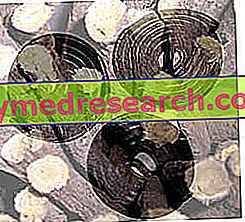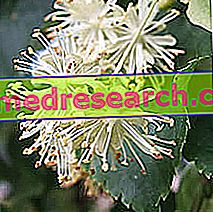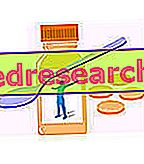What is licorice?
What we commonly call licorice is a vegetable drug consisting of the rhizomes and roots of the homonymous plant ( Glycyrrhiza glabra, family Fabaceae).
Excessive consumption of this sort of delicacy, with its typical aromas and flavors, can cause problems, especially for those suffering from high blood pressure.
Because it increases the pressure
The licorice roots, in fact, contain from 6 to 12% of glycine (glycoside of glycyrrhizic acid), in which the sugar component consists of two molecules of glucoronic acid.
The sweetening power of this glycoside is estimated to be 50-100 times higher than that of sugar; besides this and numerous other interesting phytotherapic properties (antiviral, antiulcer, hepatoprotective, laxative, anti-inflammatory, expectorant and gastroprotective), the licorice and the glycerine contained in it also boast a hypertensive action.

This effect occurs at the hepatic and renal levels, where a metabolite of glycyrrhizic acid reduces corticosteroid metabolism through inhibition of the 11-B-hydroxysteroid-dehydrogenase enzyme. This effect increases the renal cortisol activity, comparable to that exerted by aldosterone, inducing a state of hyper-pseudo-aldosteronism in the body.
In addition to an increase in blood pressure, therefore, excess liquorice can cause alterations in the hydroelectrolyte balance, with a decrease in blood potassium (hypokalaemia), hydrosaline retention (edema), decrease in diuresis and - in the most severe cases - alteration of the muscle contractility and cardiac rhythm.
Contraindications and Precautions
As explained above, licorice should be consumed with particular moderation - if not even avoided - by patients suffering from arterial hypertension, hypokalemia and chronic renal failure.
Particular care should be taken in the joint use of licorice and:
- ACE inhibitor drugs, diuretics or other medicines for high blood pressure (can reduce the therapeutic activity);
- laxatives (increased risk of hypokalemia);
- antiarrhythmic drugs;
- contraceptive pill (which in itself can slightly increase blood pressure);
- corticosteroids (licorice may enhance its effect).
Worth noting is the presence on the market of de-glycated preparations, which however - in addition to the hypertensive effect and other possible side effects - lose most of the therapeutic virtues of licorice.



